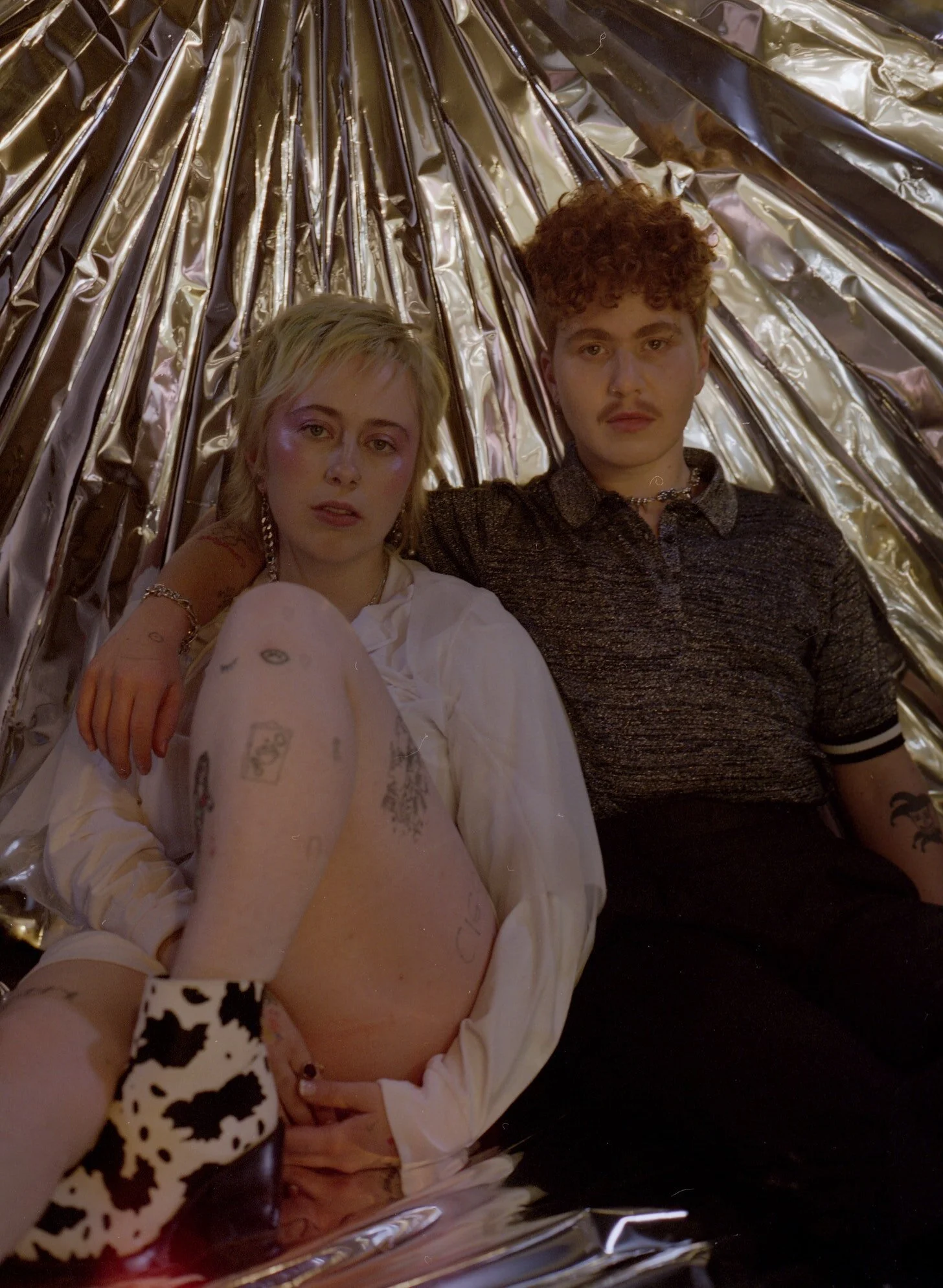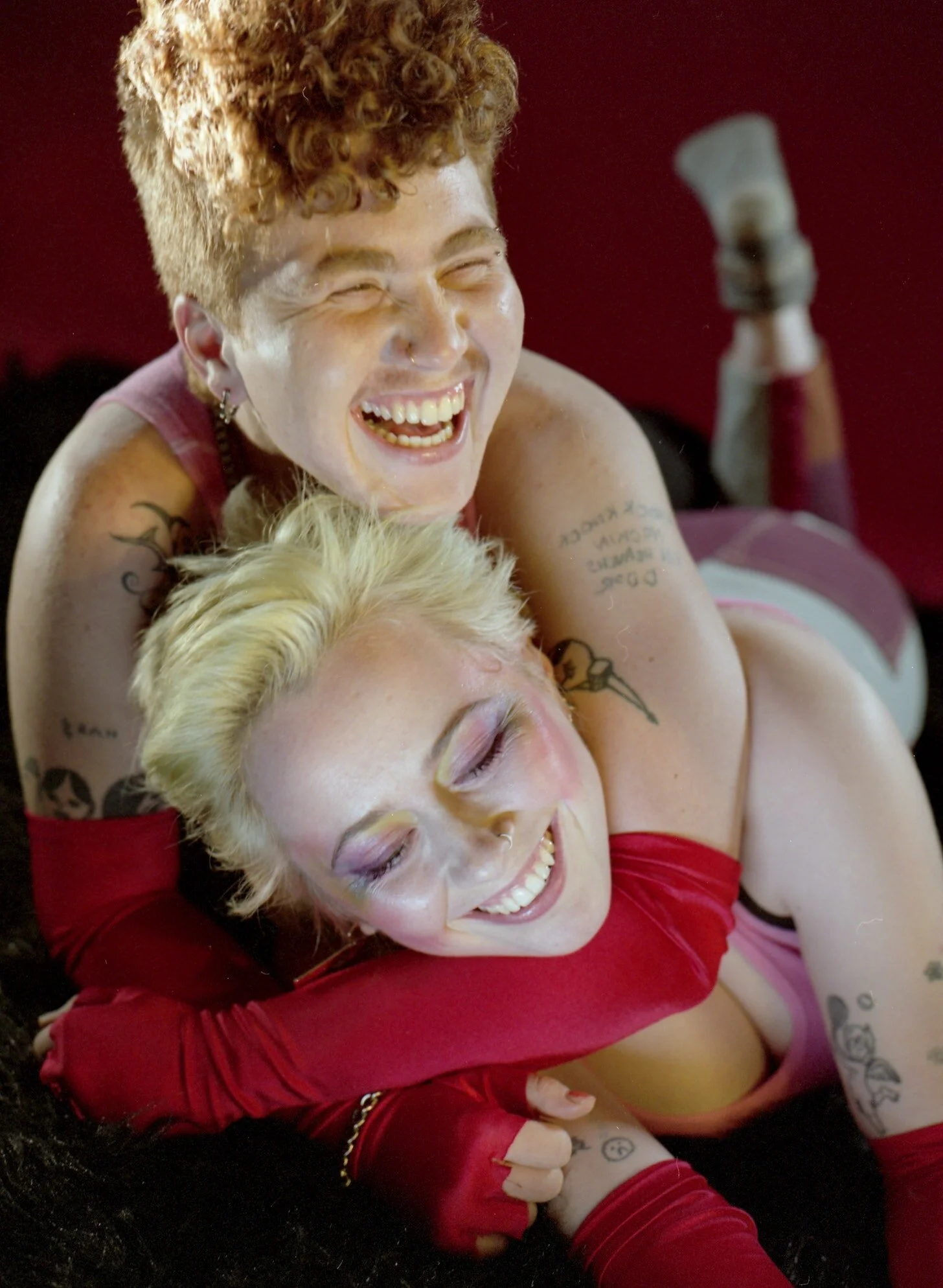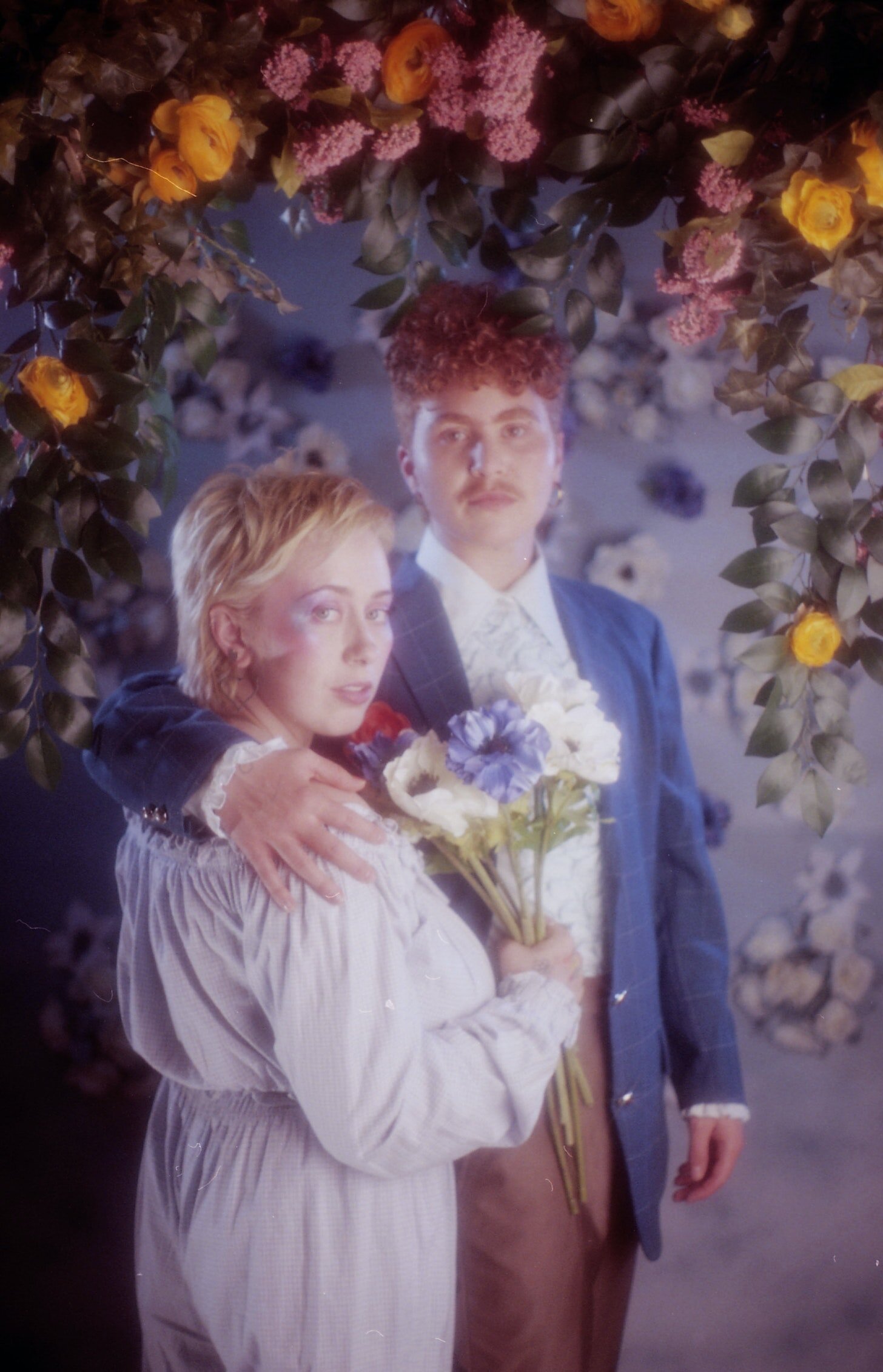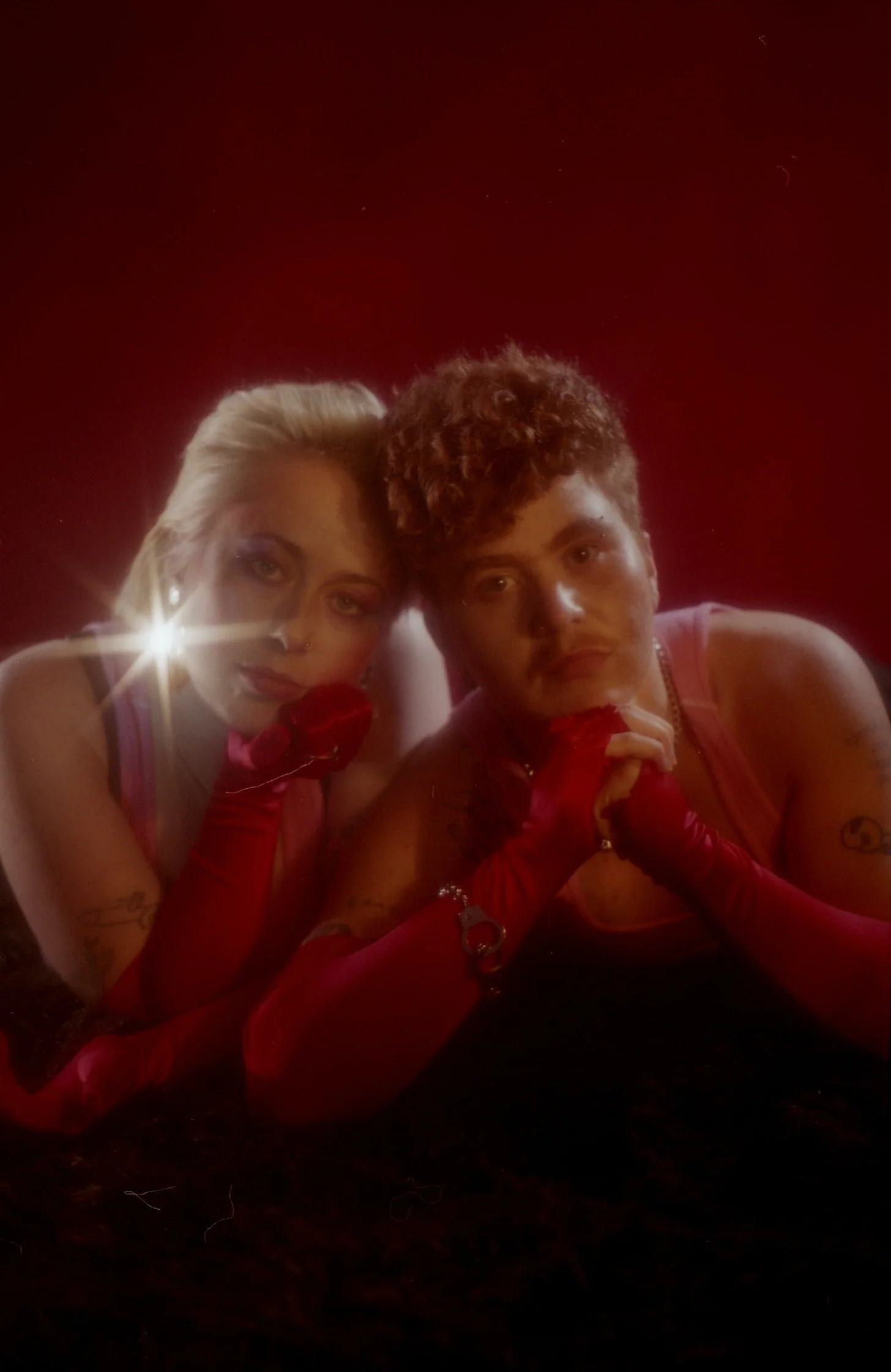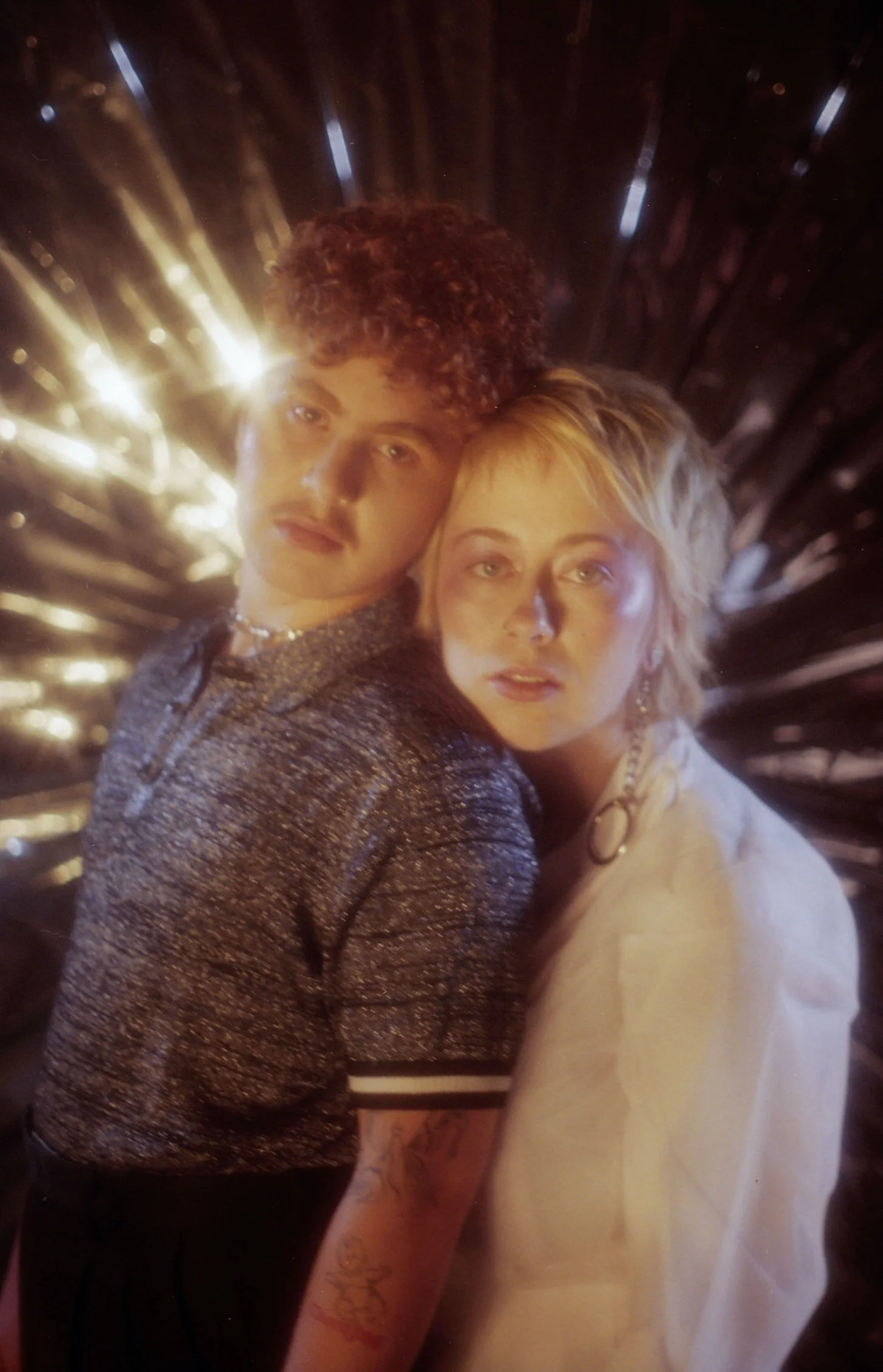Growing Up as Girlpool
Make it stand out
Girlpool are a band that have been doing a lot of growing over the past couple of years. First thrown into the spotlight in 2014 when they released their self-titled EP, Avery Tucker and Harmony Tividad were just teenagers. Now six years in, their music is beloved by fans all over the world. Their 2014 song ‘Slutmouth’ became something of an underground feminist anthem, and they have since continued to write music that hits with an all-too-relatable combination of vulnerability and anger.
Listening through Girlpool’s back catalogue, each of their three albums reads like a time capsule of very specific anxieties, pleasures and pains relevant to that period of the band’s life. First releasing music when they were in their late teens, Harmony and Avery have written songs together for the whole existence of Girlpool. Consequently, their music tracks their movement from adolescence into reluctant adulthood.
This is made all the more poignant when you consider that Tucker began transitioning a few years ago. Their third album What Chaos Is Imaginary was released last year, and signifies a notable change in direction. It’s woozier, more synthesised and sprawling than their first few records, which were raw with punk and grunge influences.
Harmony and Avery are clearly joined at the hip. While we chat on a three-way Facetime call, they both jump in to finish each other’s sentences and pick up the flow of thought. They’re in constant synergy, and intensely thoughtful and personable. Below, they talk about spending their first years as adults on the road, the importance of intimacy, and the power of nuance.
You’ve been doing stuff as Girlpool since you were teenagers. What role has Girlpool had in your growing up?
Avery: I guess quite a lot. We both didn’t go to college after high school, so our transformative years post-teenagehood into adulthood has just been touring and writing music.
Harmony: It’s just been a really interesting method of growing up, because it’s just very un-standard. I did not expect my life to lay out like this! But it’s amazing and I’m so grateful that it’s so different than what you think as a kid your life will look like.
Avery: It’s interesting, because I thought about studying music. My parents wanted me to go to school, of course, and I didn’t really know what I was going to study, but I remember there was this moment where my dad was like, ‘you’re on an intensive, extensive music business course’. We had to learn how to run our own business, and write songs, and tour.
How has your friendship influenced the music that you make, and influenced how you work as a band?
Harmony: We’re constantly together, all the time, every day! We spend a lot of our lives together. I feel like it really helps us, because when we write about things, we really fully understand, as much as someone else can, what the other is trying to convey, or the effect they’re trying to have. It’s just insane, when you’re next to someone so often, and sharing so much of the same experiences and reality, I feel like you have such a similar vernacular about your life. There’s so much to our reality that it’s really easy to understand the other person, or empathise, or be aware of what they’re thinking and feeling.
Avery: It’s also cool to have somebody so intimately in your life that, when you’re writing, they really know your story. With the language, it’s cool to just have somebody, not even someone else in the session, but someone writing with you, when your life becomes your writing session. We’re just tuned in on each other’s shit, so it makes writing music really interesting with each other.
There’s been a lot of thinking online about how we shouldn’t look so much to romantic relationships for fulfilment because platonic relationships can fulfil that need. What’s your perspective on that, because you’ve been so close and working together so intimately as pals for such a long time?
Harmony: I feel like every form of intimate relationship is powerful and important. You can get a lot from anything, and no one thing is the inherent answer, or the prime alternative. I don’t think it’s good to set forward a binary of like, ‘this is the better alternative’.
Avery: While we joke all the time about us being married, we definitely have a very deep partnership with one another. We also love romantic relationships and value any kind of honest connection. But I definitely do think that I’ve learned most of what I know about compassion and understanding in relationships through my friendship with Harmony than any of my relationships, no matter what kind.
To talk about the album, how was it writing more separately than together for this one?
Harmony: Well, the songs were written more separately, but they were recorded very much together, really.
Avery: Even when we were writing songs mostly together from the ground up, we were also writing stuff on our own, bringing it to each other and then jumping it off of one another. It’s not like it was foreign to us to write stuff without each other. It just landed that way because we were living in different places. It wasn’t even intentional; it wasn’t like, ‘get off of my shit’, you know what I mean? We love chiming in on each other’s work. It’s exciting. What was happening was that we finished songs, and we were like, oh shit I think it’s done. Then it was like, yeah that’s great, I love that. It just happened, they were just kind of done.
The newest album has a very different feel to your previous ones. How did you arrive at that sound for this new album?
Harmony: I feel like we both just have been really interested in really more industrial-sounding pop stuff for a while. With this record, and even working on newer stuff, we’ve gone further down this rabbit hole. We just wanted to make something that was more glittery. We both were making music independently that was more like that, and we just wanted to explore that further.
What has been your experience of how accommodating the music industry is to queer people?
Avery: It’s kind of just the same as life. It’s just whatever your experience is going to work or whatever. Now that I’m passing, and people don’t know that I’m trans, that’s been interesting because there’s my male privilege now that I didn’t have. It’s just a sexist world, so now that I’m dudely, we just witness sexism. Before it was towards both of us, and now it’s people taking the cis-passing man in the band more seriously.
There’s an ideal of the music industry being more welcoming or accepting because it’s music, but that’s clearly not always the case.
Avery: The thing with the music industry is that fans have the opportunity to come out and have community with one another and be together, as opposed to other industries where you’re just going to work and not really interacting with the people that are engaged in the work. I guess that’s cool.
Related to that, what message do you hope that your listeners will take away from your music or Girlpool more generally as a project?
Harmony: Mission statement! I guess just that there’s fluidity in everything and nothing is inherently one thing. That’s both of our ideologies, and what we try to carry into our work: that there’s really not one good, ideal way of operating in the world. Everything has a lot of nuance, and you have to create space for that and be aware of that.
Avery: I really don’t know… The thing is that Girlpool isn’t a heavily performative project where we’re being separate people. I think being a person is performative, and we definitely are performative on-stage, and have moments where we’re embodying different parts of our being, but our project is pretty true to whatever is going on in our lives, so the mission statement is kind of tricky because Girlpool is just our place to get our shit out. That resonating with other people is a miracle and really cool.
Now that it’s 2020, what do you predict or hope for for Girlpool in the next year?
Avery: We’re writing new music right now, and we’re just going to put out a new album this year. That’s the T.
Harmony: That’s the T.
Words: Jemima Skala | Images: Gina Canavan | Hair: Rina Calhoun | Wardrobe styling: Branden Ruiz | Makeup: Alexa Hernandez | Photo assistant: Matt Goldberg

